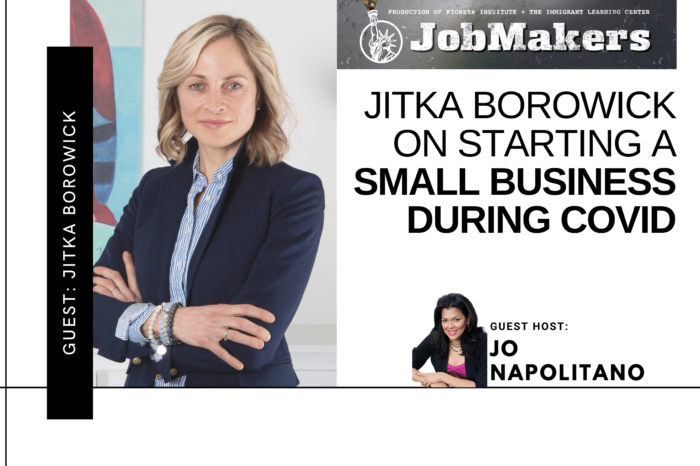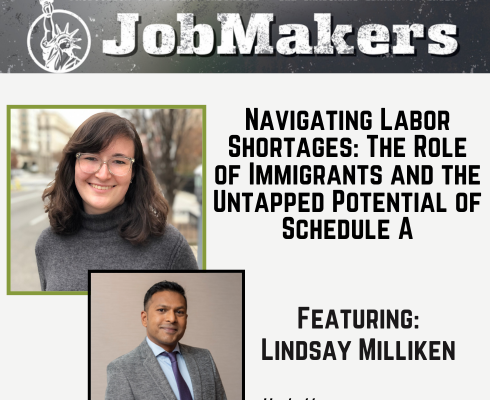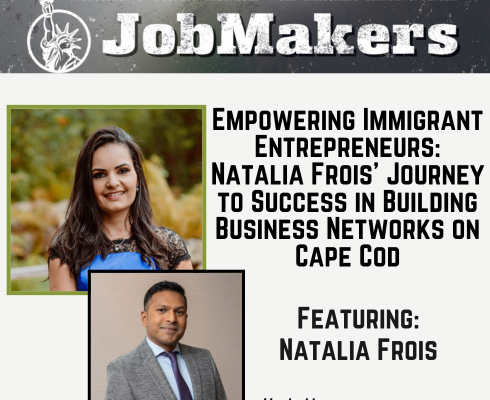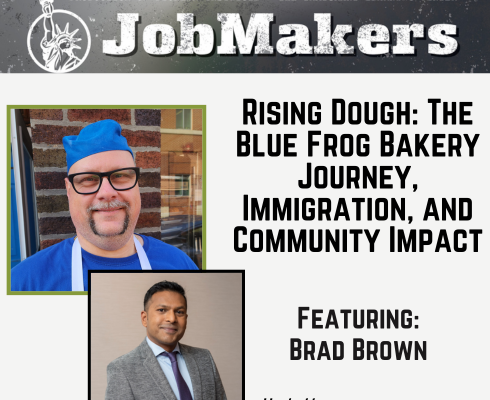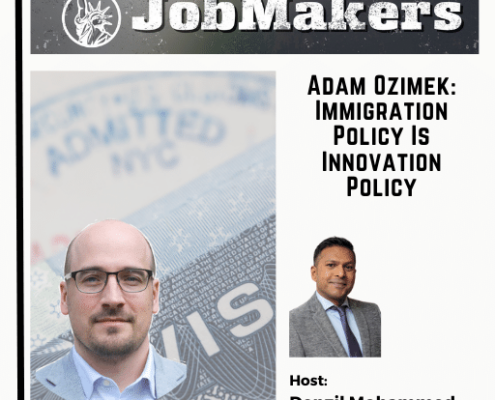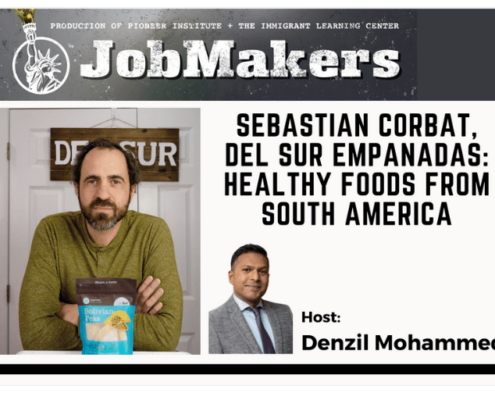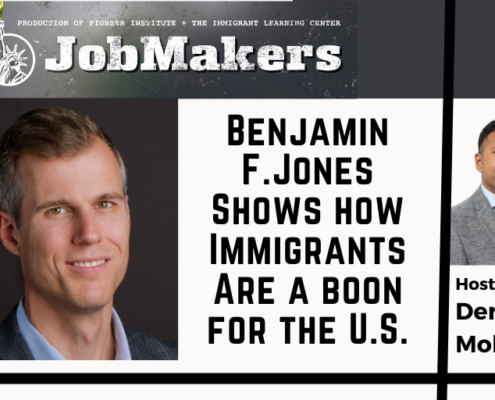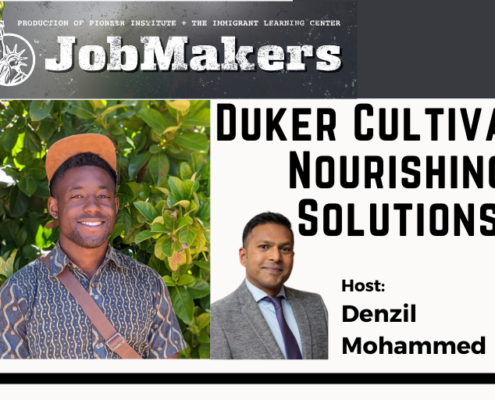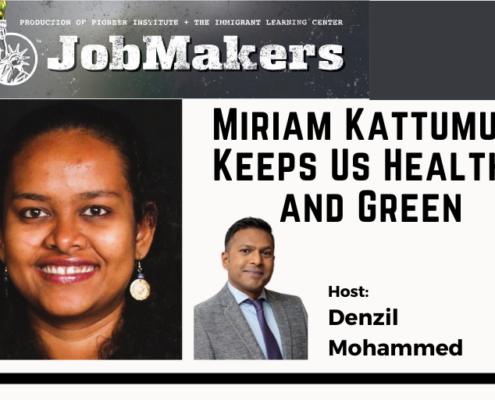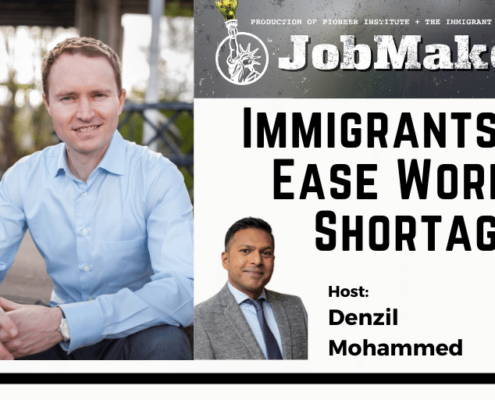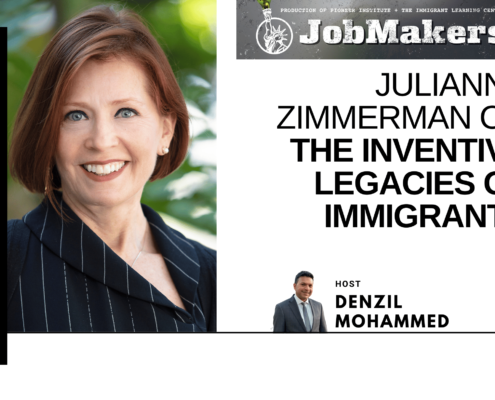Jitka Borowick on Starting a Small Business during COVID
This week on JobMakers, Guest Host Jo Napolitano talks with Jitka Borowick, Founder & CEO of Cleangreen, a cleaning service committed to environmentally-friendly practices, and Nove Yoga, launched during COVID. Jitka grew up under communism in the Czech Republic. Determined to learn English, she made her way to the U.S., initially with plans to stay for only one year – but ended up making it her home. In this episode, they discuss the difficulties of learning another language and culture, her pathway to entrepreneurship, and her courageous decision to open a new business during a pandemic. Jitka shares insights on how her companies have successfully adapted to the challenges so many small businesses have encountered over the past year.
Guest:
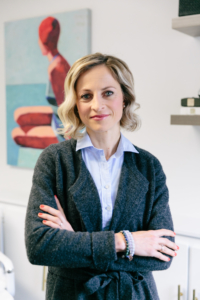 Jitka Borowick came to the U.S. in 2003 from the Czech Republic, with the goal of becoming fluent in English. Five years later, she launched Cleangreen, a natural cleaning company serving residential and commercial clients on Cape Cod. The company’s mission is to provide safe, effective and affordable cleaning options which support its clients’ well-being and contribute to environmental sustainability. The business has earned designations as “Best of Cape Cod” from Cape Cod Magazine’s readers and the 2014 Business of the Year from the Hyannis Area Chamber of Commerce. In 2020, during the COVID-19 pandemic, Jitka courageously launched a second business, Nové, a yoga and wellness studio with in-person and online offerings. Jitka has been recognized for her leadership and involvement in the community, including awards from Cape & Plymouth Business, Cape Cod Magazine, Cape Cod SCORE, Enterprising Women Magazine; 2017 recipient of the Community Advocacy Award from Eastern Bank, and alumna awards from Cape Cod Community College and Suffolk University. Jitka is currently a trustee at Cape Cod Academy, and has served on the boards of the Barnstable Village Business Association and the Cape Cod Community College Educational Foundation. She is a past President of the Business Network International Convergence Team and the Rotary Club of Hyannis; and past Board Chair of Flower Angels USA and Hyannis Rotary Good Works. Jitka earned degrees from Cape Cod Community College and Suffolk University.
Jitka Borowick came to the U.S. in 2003 from the Czech Republic, with the goal of becoming fluent in English. Five years later, she launched Cleangreen, a natural cleaning company serving residential and commercial clients on Cape Cod. The company’s mission is to provide safe, effective and affordable cleaning options which support its clients’ well-being and contribute to environmental sustainability. The business has earned designations as “Best of Cape Cod” from Cape Cod Magazine’s readers and the 2014 Business of the Year from the Hyannis Area Chamber of Commerce. In 2020, during the COVID-19 pandemic, Jitka courageously launched a second business, Nové, a yoga and wellness studio with in-person and online offerings. Jitka has been recognized for her leadership and involvement in the community, including awards from Cape & Plymouth Business, Cape Cod Magazine, Cape Cod SCORE, Enterprising Women Magazine; 2017 recipient of the Community Advocacy Award from Eastern Bank, and alumna awards from Cape Cod Community College and Suffolk University. Jitka is currently a trustee at Cape Cod Academy, and has served on the boards of the Barnstable Village Business Association and the Cape Cod Community College Educational Foundation. She is a past President of the Business Network International Convergence Team and the Rotary Club of Hyannis; and past Board Chair of Flower Angels USA and Hyannis Rotary Good Works. Jitka earned degrees from Cape Cod Community College and Suffolk University.
Get new episodes of JobMakers in your inbox!
Browse recent episodes:

